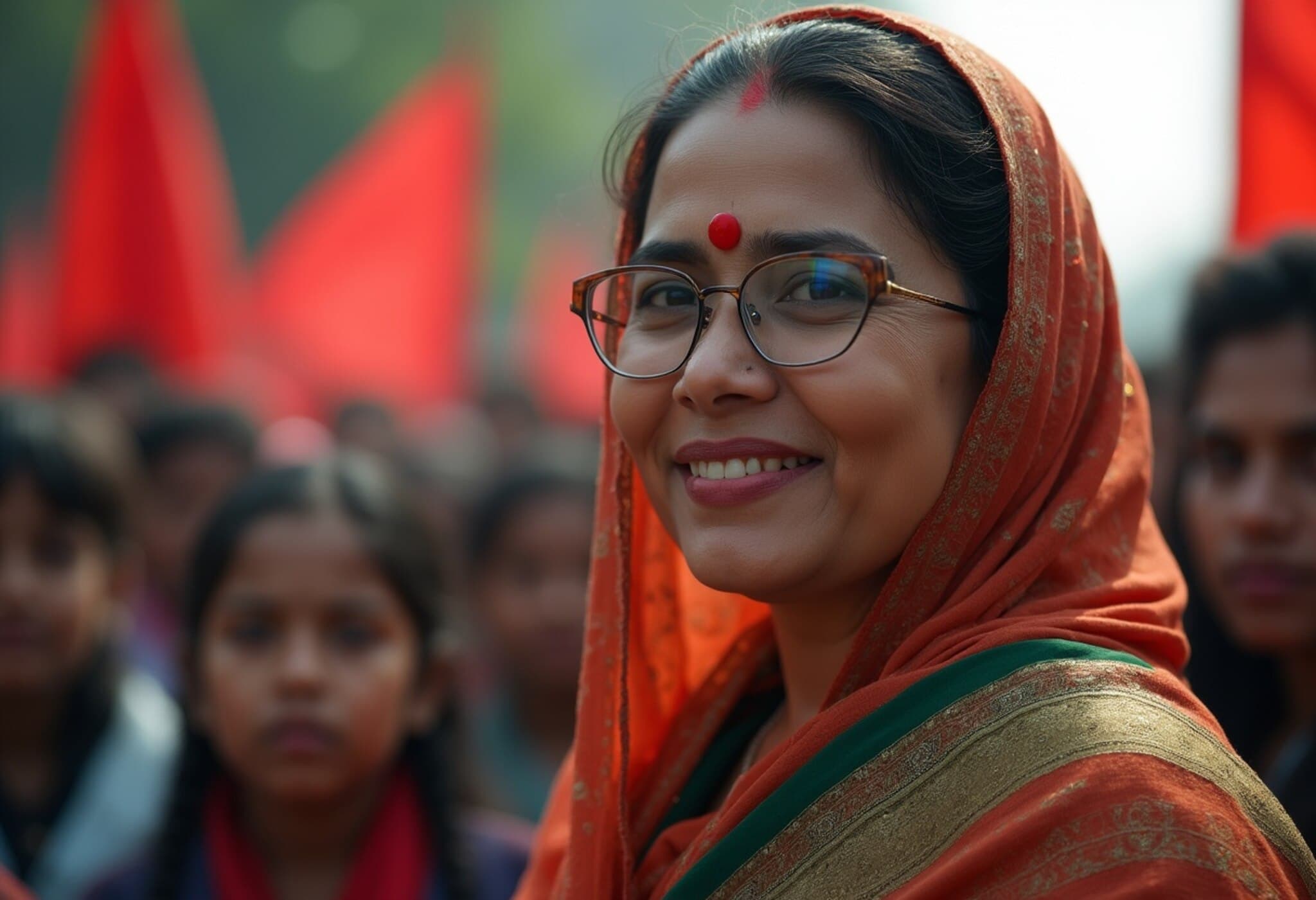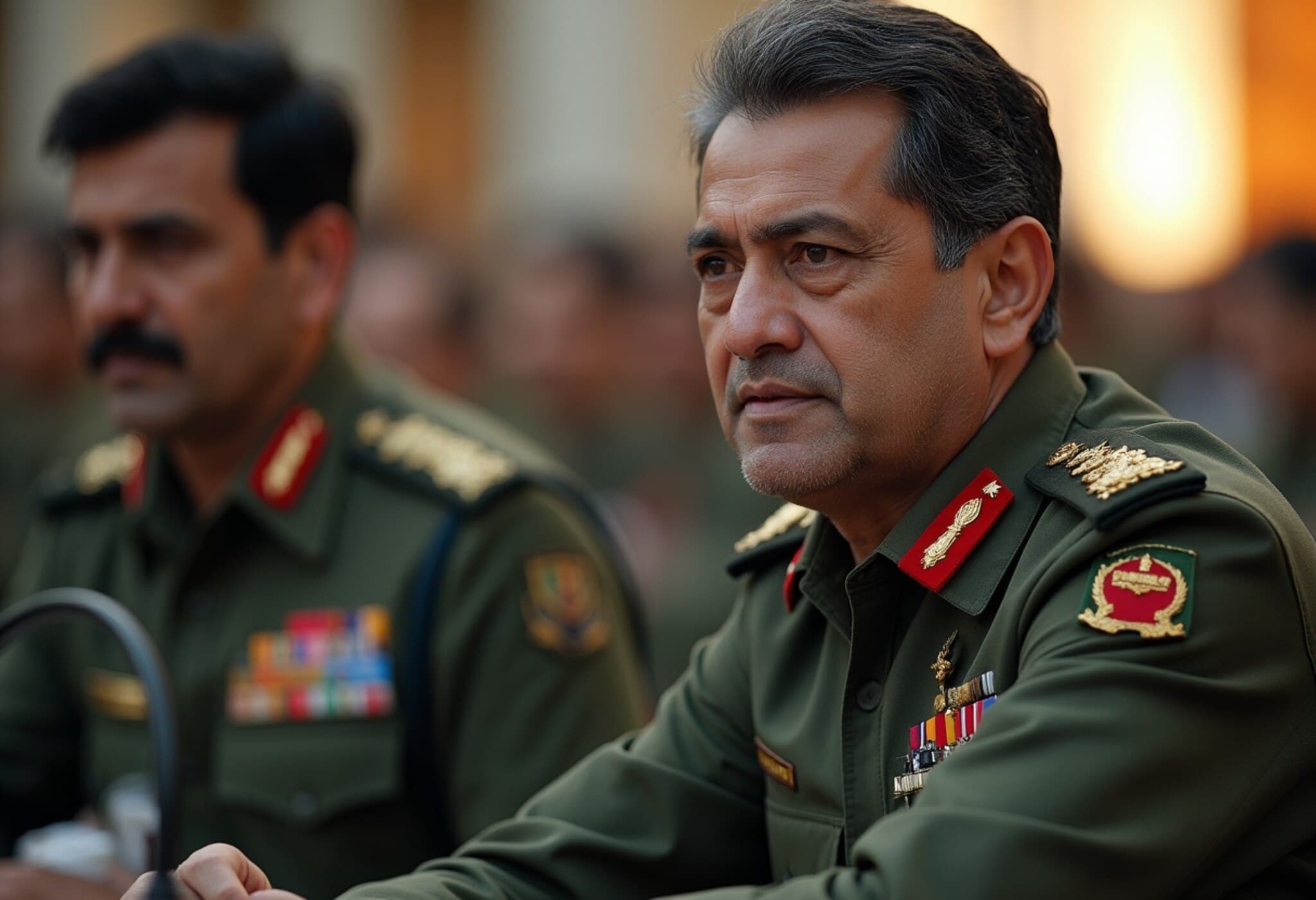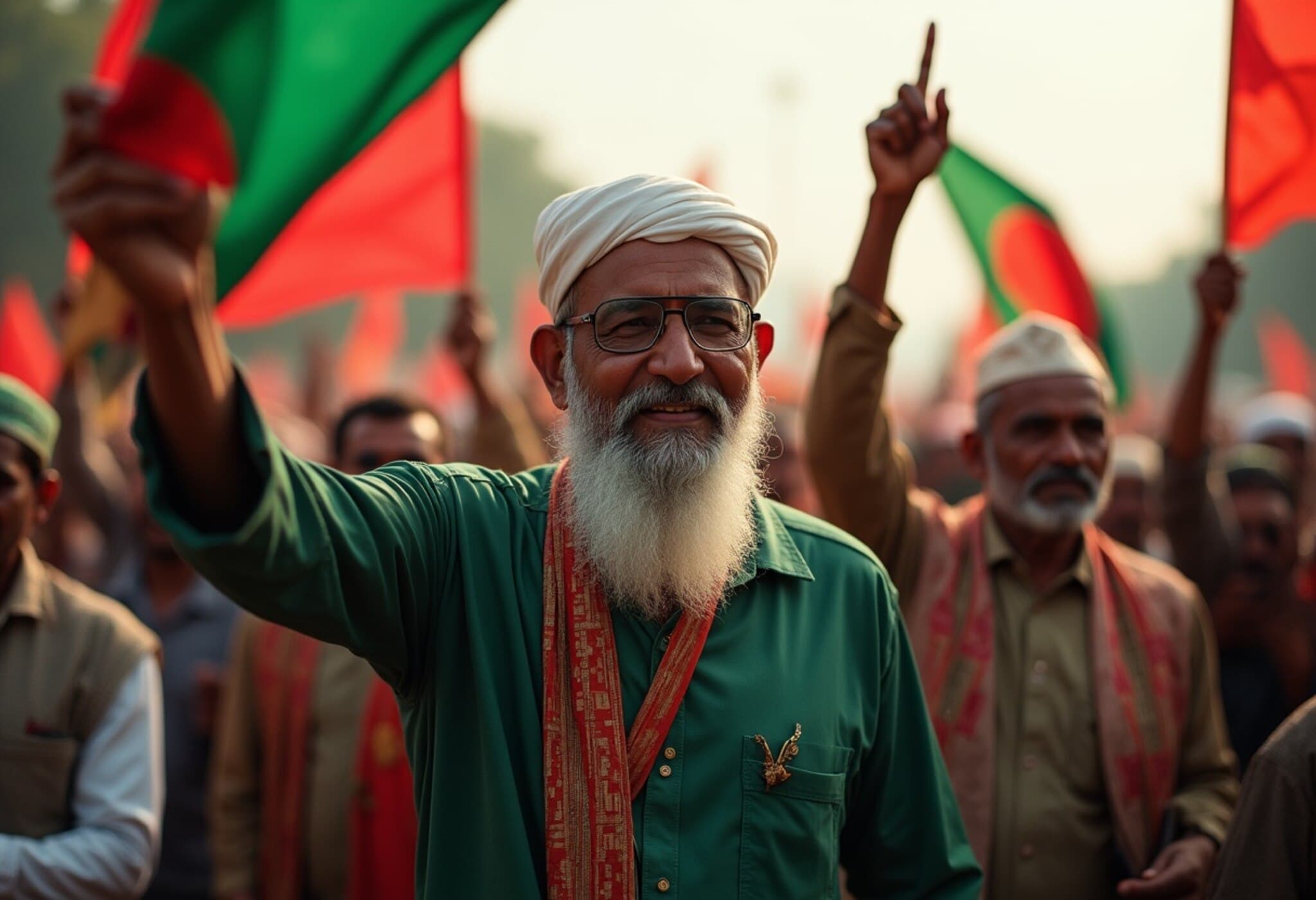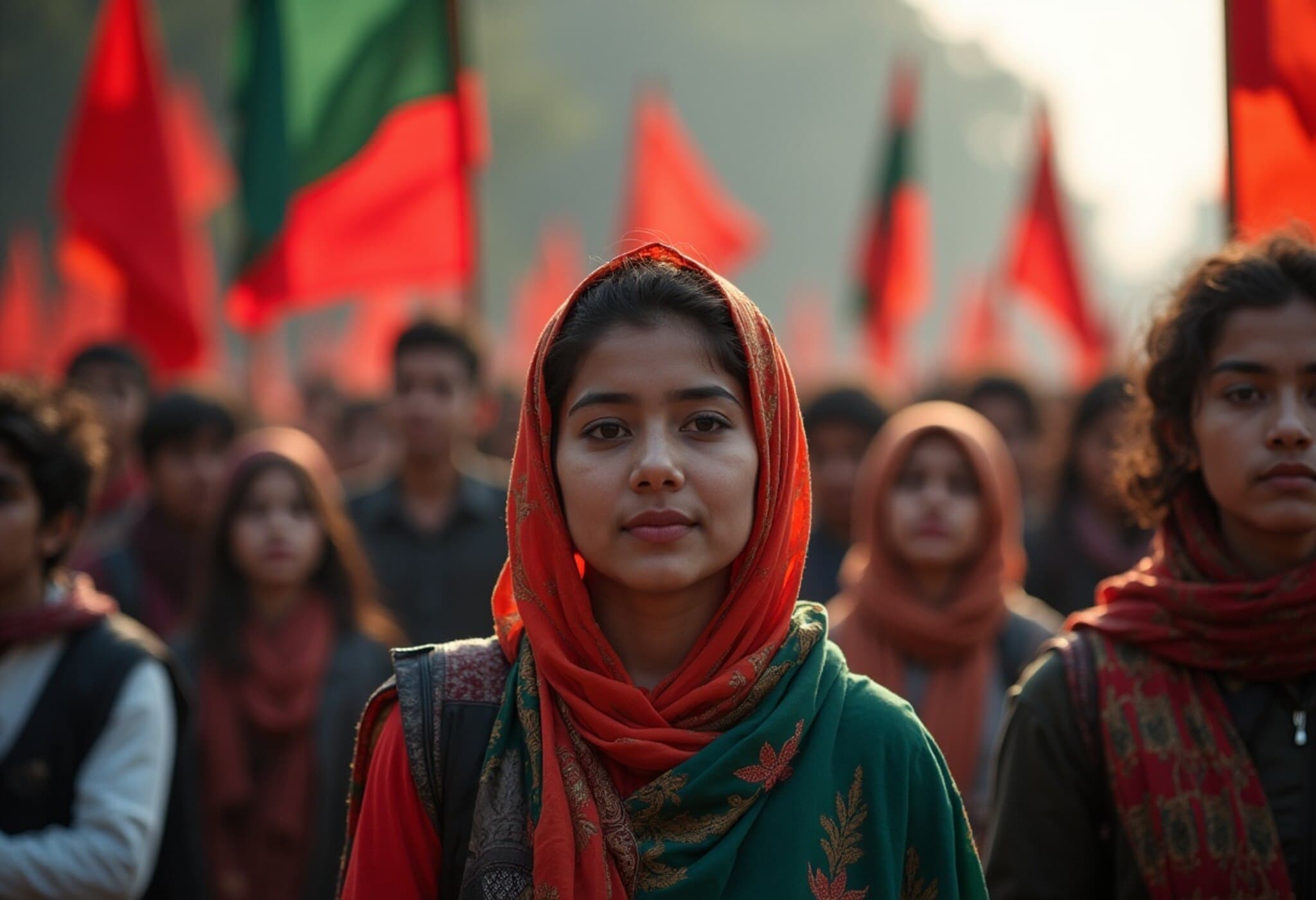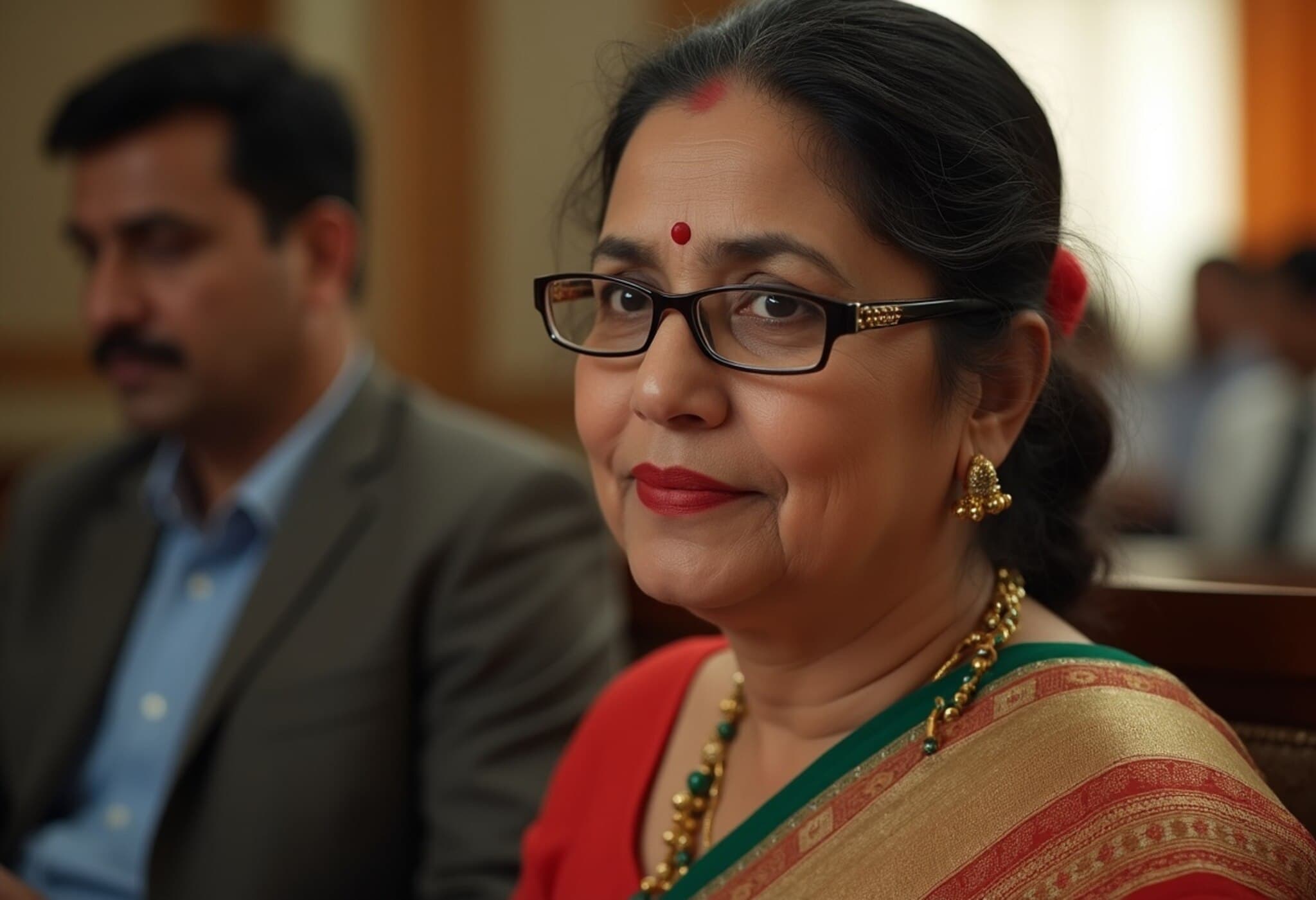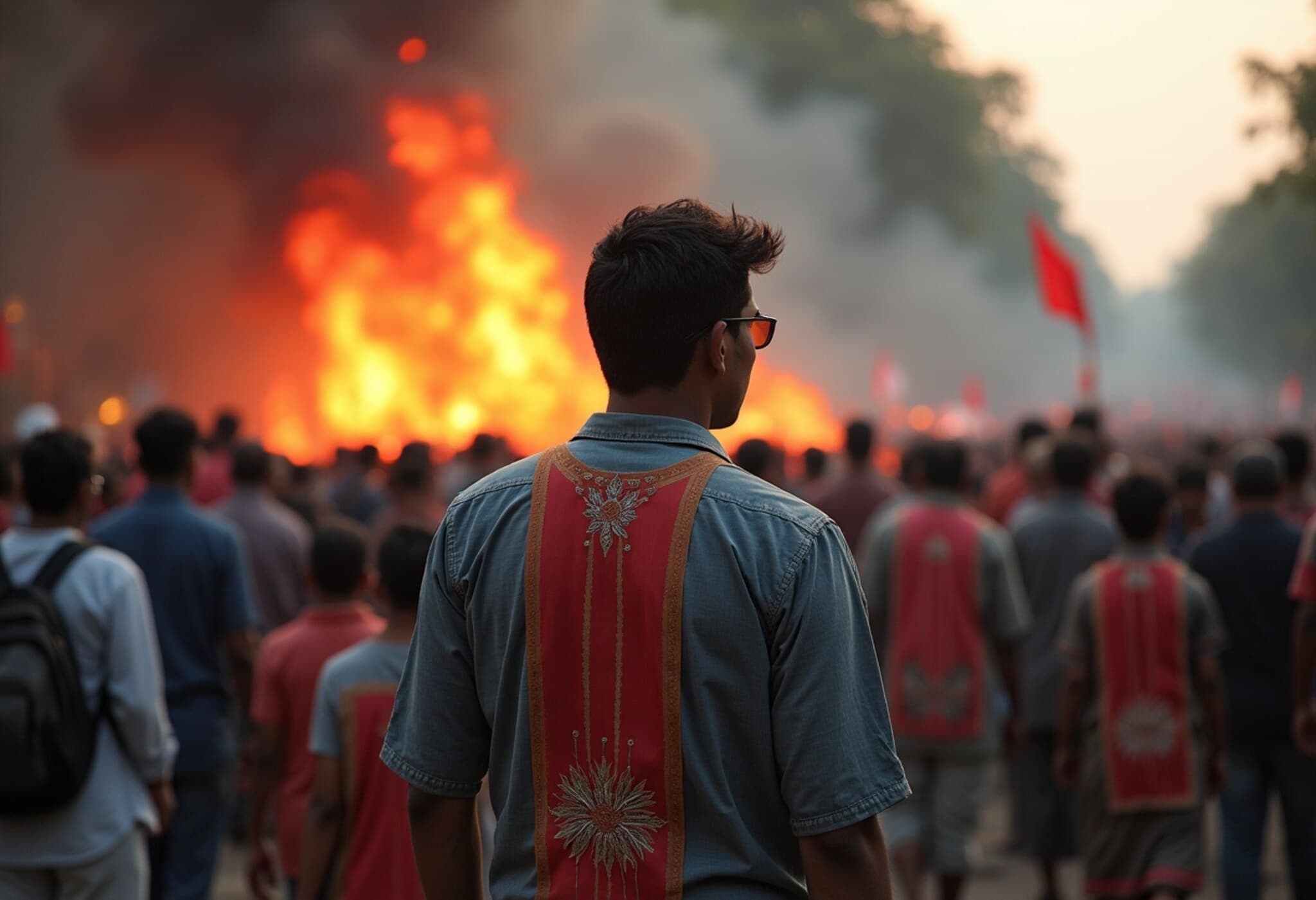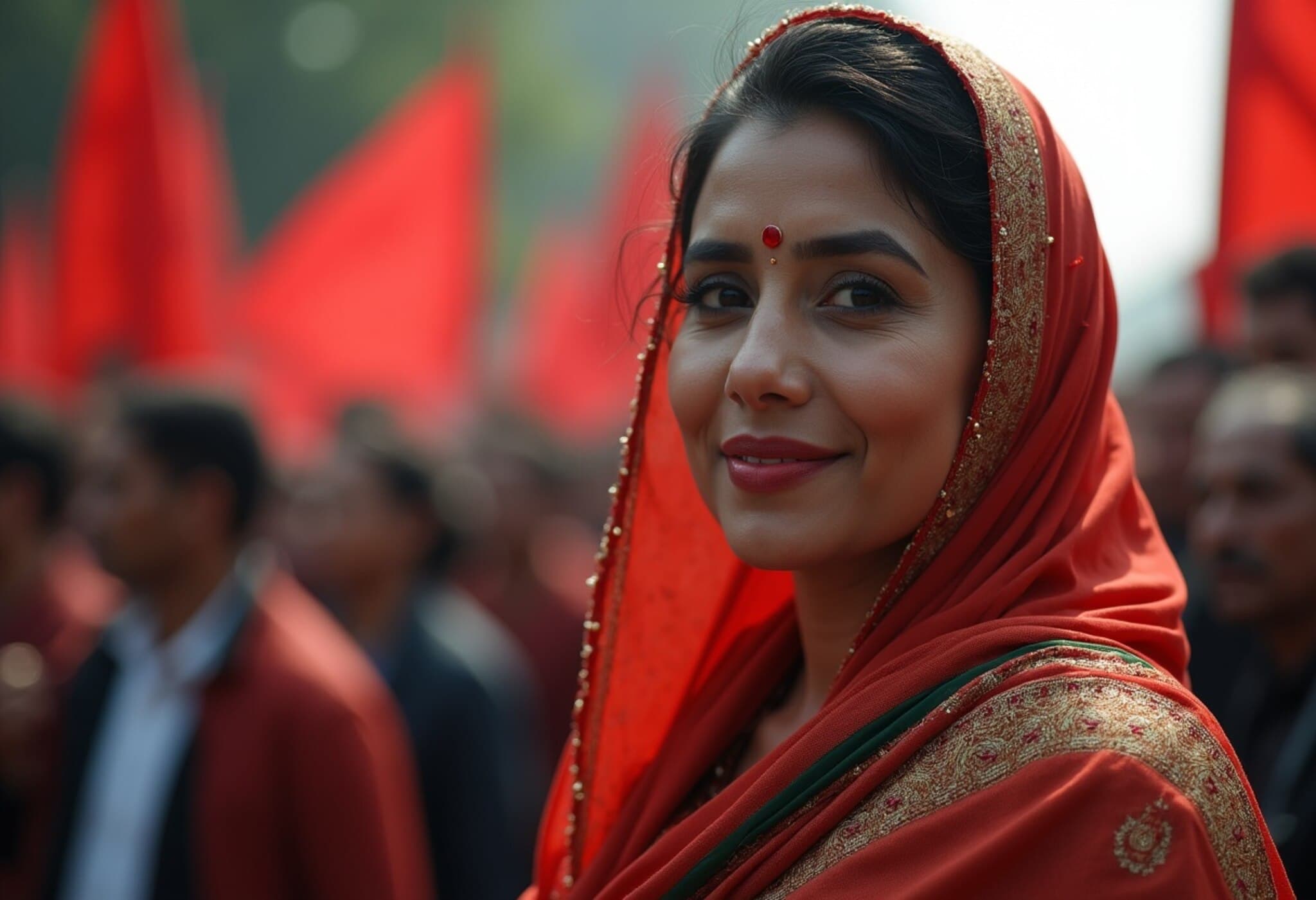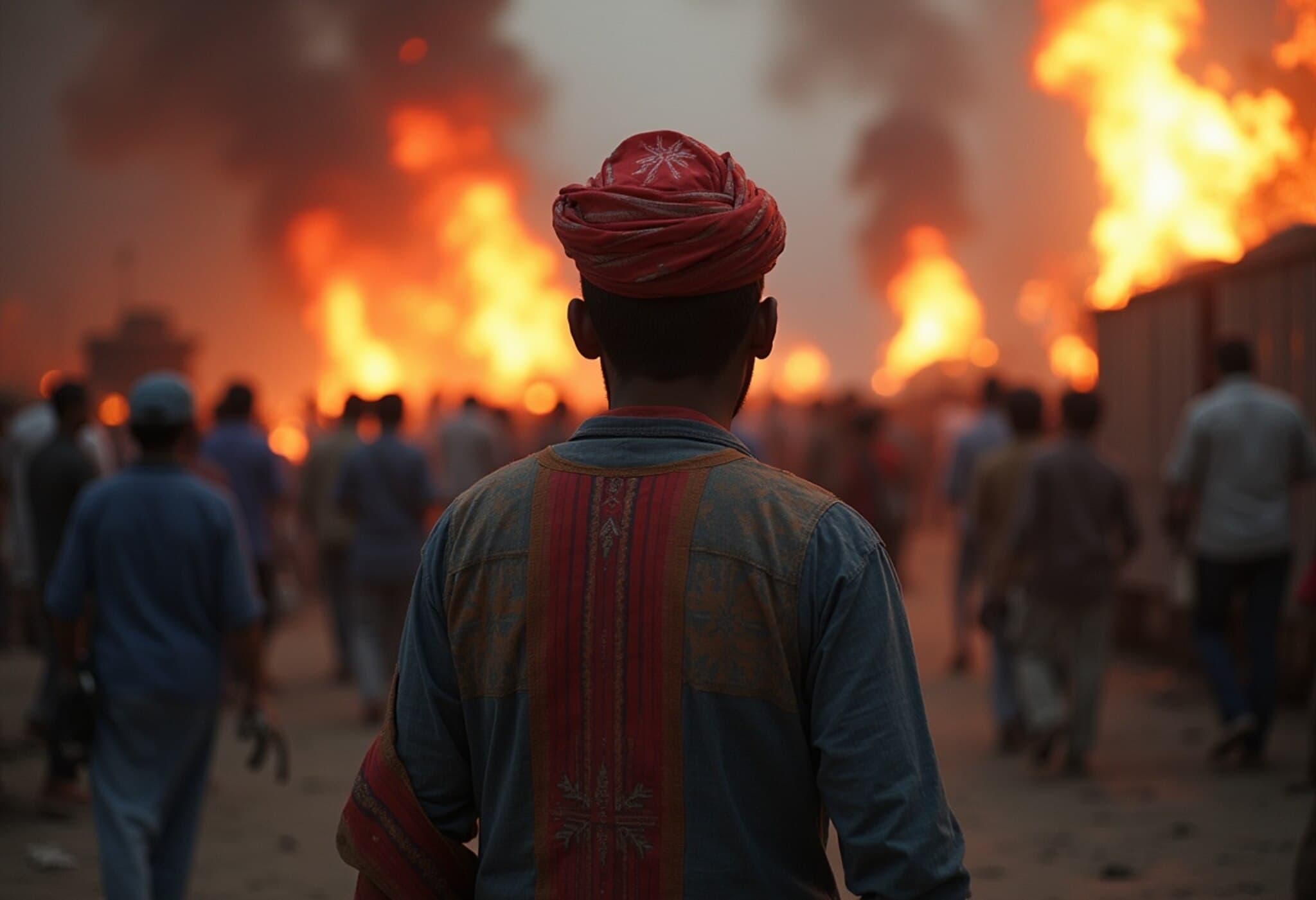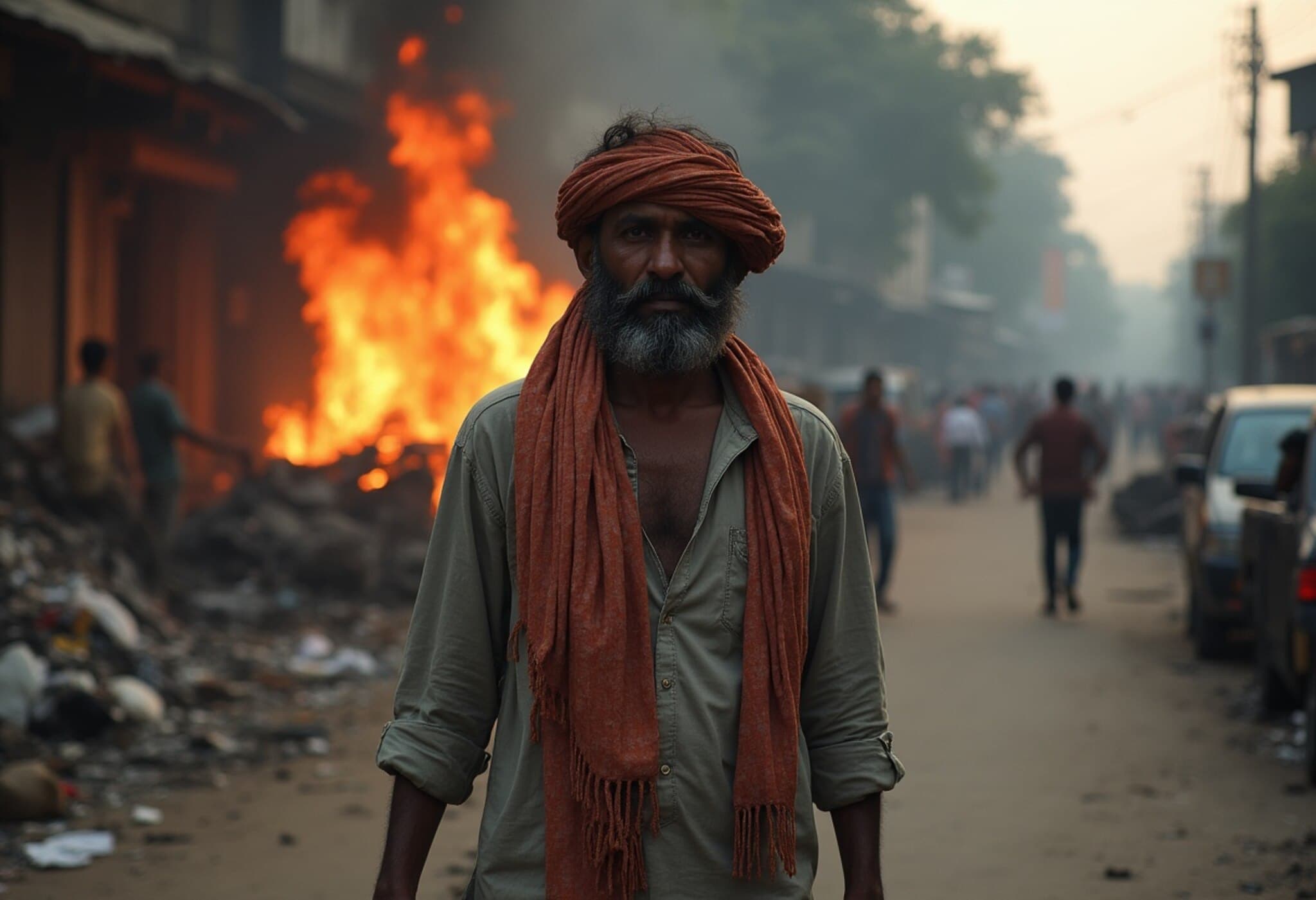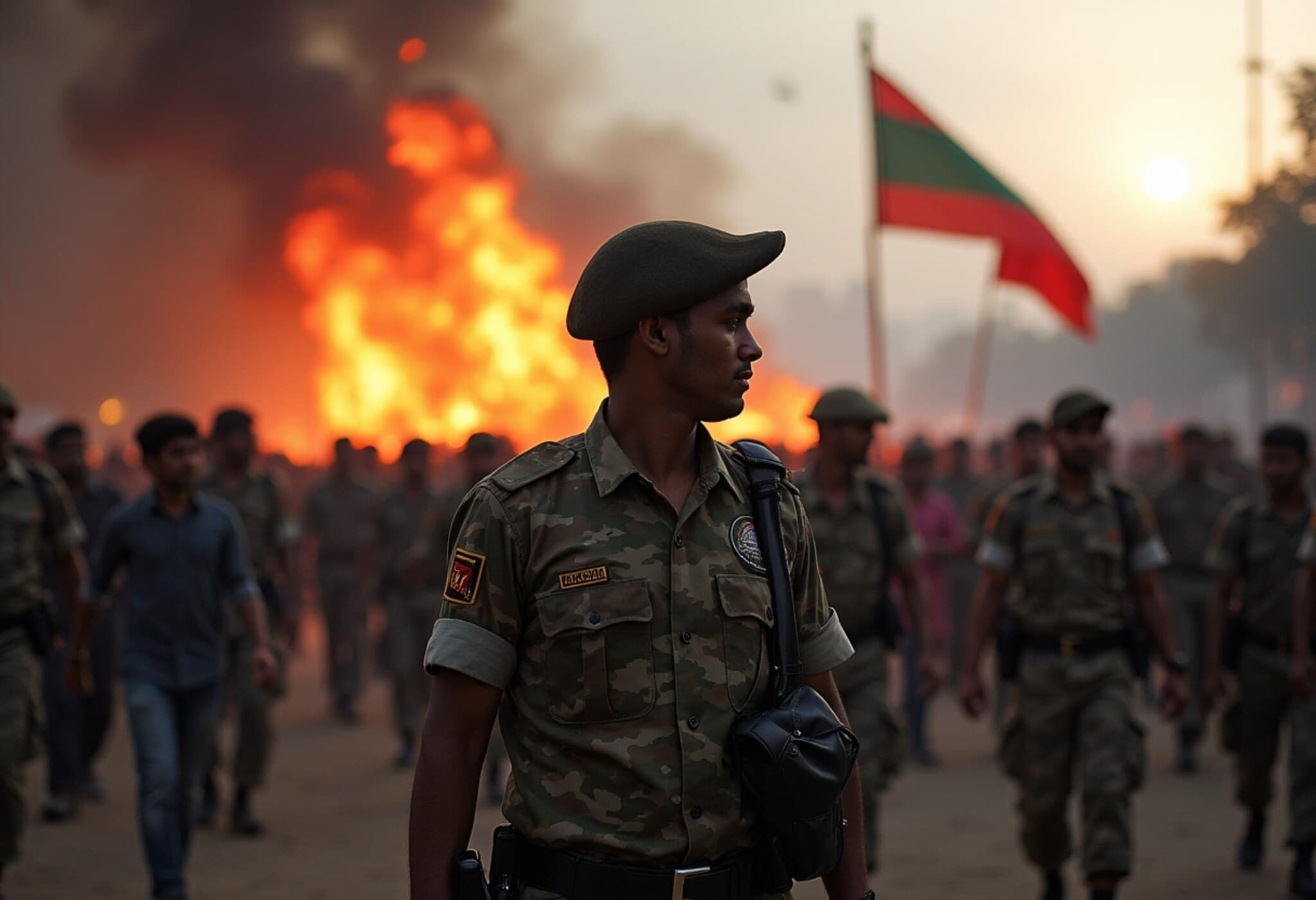Bangladesh’s Interim Government Set to Announce Landmark 'July Declaration'
On August 5, 2025, exactly one year after the dramatic removal of Sheikh Hasina’s Awami League government, Bangladesh’s interim government, led by Nobel laureate and economist Muhammad Yunus, will officially present the much-anticipated 'July Declaration.' This declaration aims to enshrine the political significance of the youth-driven uprising that reshaped the country’s political landscape last year.
Background: A Nation Transformed by Youth-Led Protests
The unrest that swept across Bangladesh in July-August 2024, primarily spearheaded by the Students Against Discrimination (SAD), culminated in the forced exit of Prime Minister Sheikh Hasina and her administration. What began as a mass protest quickly morphed into a profound political upheaval challenging decades-old power structures.
The interim government under Muhammad Yunus—who stepped in as chief adviser following Hasina’s departure—has since worked to unify the fragmented political environment. The unveiling of the July Declaration is poised to serve as a cornerstone in this endeavor by granting constitutional legitimacy to the movement and its core ideals.
The 'July Declaration': What It Means and Who’s Behind It
According to a statement from Yunus’ press team, the final draft of the July Declaration is complete and will be presented to representatives from all supporting factions involved in the 2024 protests. The declaration envisions a commitment to values including anti-fascism, democratic revival, and comprehensive state reform.
Mahfuj Alam, the government’s information adviser and regarded as the mastermind behind the July uprising, hailed the declaration as a “reality” and thanked activists and citizens for their persistence in keeping the movement’s momentum alive.
Leaders from SAD, notably Hasnat Abdullah—now heading the National Citizen Party (NCP), which emerged with Yunus’ backing—have long advocated for formal recognition of the movement. By late 2024, they began campaigning for what they called the “Second Republic,” which seeks to move away from the 1972 Mujibist Constitution and redefine Bangladesh’s political ethos.
Contentious Debates: Constitutional Legitimacy and Political Ramifications
The July Declaration's proposal to symbolically 'bury' the 1972 constitution and declare the Awami League “irrelevant” has ignited heated debates. While proponents argue it offers a fresh foundation rooted in democratic renewal, opponents view such moves as dangerously destabilizing.
Notably, senior leaders from the Bangladesh Nationalist Party (BNP), such as Amir Khasru Mahmud Chowdhury, have openly rejected the notion of enacting constitutional changes outside of parliamentary process. They underline that, without a functioning parliament, constitutional amendments lack legal validity and could ignite further political unrest.
Legal experts warn the scrapping of the 1972 constitution—the bedrock of Bangladesh’s sovereignty—could threaten not just political stability but the nation's very existence. This reveals a fault line between revolutionary aspirations and constitutional pragmatism facing the interim government.
Expert Perspective: Balancing Revolution with Rule of Law
The unfolding scenario presents a classic challenge observed in transitional democracies worldwide: how to honor popular movements that seek rapid change while preserving legal frameworks that guarantee stability and rights. Bangladesh’s experience underscores the risks of bypassing institutional norms even in pursuit of democratic ideals.
Moreover, Muhammad Yunus’s leadership as a Nobel laureate brings unique economic and social credibility to the government but also raises questions about bridging grassroots activism with elite policymaking. The July Declaration could prove a litmus test for inclusive governance and reconciling diverse political forces.
Conclusion: What the July Declaration Signals for Bangladesh’s Future
The upcoming announcement is more than a symbolic gesture; it encapsulates the hopes, tensions, and unresolved questions swirling around Bangladesh’s future trajectory. Will it chart a path toward a more inclusive, democratic society, or deepen divides by sidelining opposition voices? The international community and citizens alike will be watching closely.
Key Takeaways:
- August 5, 2025: The formal presentation of the July Declaration marks a pivotal moment for Bangladesh’s politics.
- Youth Movement Recognition: The declaration seeks to constitutionally acknowledge the 2024 youth-led uprising.
- Controversy Over Constitutional Amendments: Legal experts warn constitutional changes outside parliament could undermine state stability.
- Political Divides: While the interim government embraces the declaration, major opposition parties remain skeptical.
- Broader Implications: Balancing revolutionary impulses with rule of law is a delicate task facing Bangladesh’s transitional government.
Editor’s Note
The unveiling of the July Declaration offers a moment to reflect on the complex interplay between grassroots activism and institutional governance in Bangladesh. For a country grappling with political upheaval, this document could either serve as a unifying manifesto or further entrench existing fault lines. Readers should consider how constitutional legitimacy is constructed in emerging democracies and the role youth movements play in reshaping political narratives worldwide.

